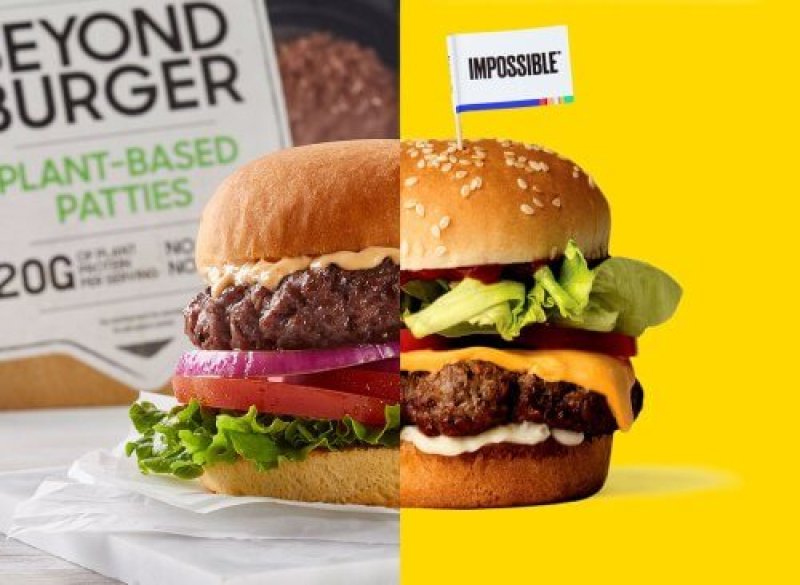The Center for Biological Diversity supports Beyond and Impossible burgers and other food innovations urgently needed to accelerate the shift toward plant-forward diets, which will reduce the environmental devastation caused by meat and dairy production.
…
“Impossible Foods and Beyond Meat are doing us all an important service by pushing meat alternatives into mainstream culture at a level we haven’t seen before [said Kierán Suckling, the Center’s executive director]. By speeding up the transition we desperately need to make toward plant-based eating, they’re helping to save people, wildlife and our endangered planet.”
[Editor’s note: Center for Biological Diversity has historically been strongly opposed to GMOs, claiming crop biotechnology has led to increased use of crop chemicals.]
…
The current generation of rapidly advancing plant-based foods is necessarily part of an inherited complex and flawed industrial-food system. Due to the expense and limited availability of organic plant protein, most are not organic and some use genetically engineered (GE) ingredients to meet growing demand or to avoid using non-GE, but rainforest-depleting, Brazilian soy.
…
Our work to reduce the harms caused by pesticides, genetically engineered crops and monocultures is advanced by plant-based meats, which use dramatically fewer resources. It takes between 40-58 pounds of feed, often comprised of monoculture crops like GE corn and soy, to create just one pound of beef, while plant-based meat like the Impossible Burger uses no more than 8 ounces of soy per pound.
Thus even when plant-based meats use GE crops, they still reduce the overall demand for GE soy and other monoculture feed crops.
Read full, original article: Center for Biological Diversity Endorses Impossible, Beyond Burgers































